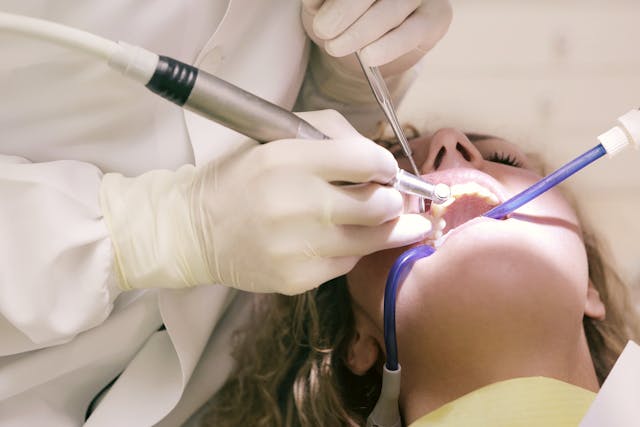Maintaining dental health can influence overall well-being. Many adults visit a dentist only when they face dental pain or discomfort, but routine dental cleanings are key in preventing oral health issues. Both professional cleanings and at-home dental hygiene practices provide long-term benefits for maintaining a healthy mouth.
Why Do I Need To Schedule a Dental Cleaning?
Scheduling a dental cleaning at regular intervals helps to address common oral health concerns. A cleaning removes plaque, tartar, and bacteria that are not easily eliminated with brushing and flossing alone. These substances can accumulate over time. This can lead to potential problems like cavities or gum inflammation.
Professional cleanings also monitor oral health conditions. During routine visits, a dental professional can identify early signs of issues, such as tooth decay or gingivitis, before they develop into more significant problems. This process allows individuals to maintain their smiles and reduce the likelihood of uncomfortable dental procedures down the line.
How Often Should I Have Dental Cleanings?
The recommended frequency of dental cleanings depends on an individual’s age, oral health, and lifestyle habits. For most adults, visiting a dentist every six months is often suggested to maintain optimal oral hygiene. This timeframe provides enough opportunity to manage plaque buildup and identify potential issues early. Individuals with specific oral health conditions, such as a history of gum disease, may benefit from more frequent cleanings.
Some dentists may advise quarterly visits for those at higher risk of oral health complications. Similarly, children and teens may require cleanings at different intervals depending on their developmental stage and habits, such as orthodontic treatment or dietary influences. It is highly recommended to consult your dentist to determine the most appropriate cleaning schedule for your unique needs.
What Are the Health Benefits of Regular Cleanings?
Routine dental cleanings help protect against several common oral health problems. Removing plaque buildup reduces the risk of cavities by cleaning hard-to-reach areas between teeth or near the gumline. Professional cleanings also address tartar accumulation, which cannot be removed at home and may lead to tooth decay or gum irritation when left untreated.
Gum health is another benefit of regular dental visits. Cleanings can minimize the likelihood of gum disease by removing bacteria that may cause gingivitis or more severe periodontal issues over time. Healthy gums contribute to a stable foundation for your teeth, reducing complications related to tooth loss or infection.
Beyond oral hygiene, dental cleanings contribute to maintaining fresh breath. Persistent bad breath, or halitosis, may result from plaque buildup or bacteria in the mouth. Professional cleanings help address these underlying causes for a more confident smile.
How Can I Improve My Dental Hygiene at Home?
While professional cleanings are necessary, maintaining good oral hygiene practices at home is necessary for dental health. Regular brushing should occur twice daily using a fluoride toothpaste. This process removes surface plaque and protects tooth enamel.
Flossing daily is a required step for cleaning between the teeth and along the gumline, areas where a toothbrush cannot reach effectively. Consider using interdental brushes or water flossers for additional cleaning precision, especially if you have braces or other dental appliances. Mouthwash may complement brushing and flossing by reducing bacteria in the mouth and providing a cleaner feeling.
Take the Next Step in Maintaining Oral Health
Routine dental cleanings and consistent oral hygiene habits are key to protecting your smile and overall health. If it has been a while since your last visit, consider reaching out to your dental office today to discuss your cleaning options. By establishing a better dental care routine, you can proactively address potential issues and maintain your oral health for years to come.

